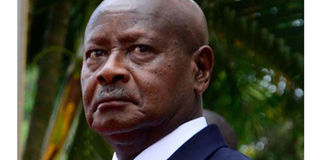More could have been achieved in last 35 years

Under President Museveni's reign, privatisation put key sectors of the economy such as banking in the hands of foreigners, which has created exploitative tendencies. PHOTO/FILE
What you need to know:
- By the time President Museveni captured power in 1986, there was a consensus that he inherited a broken economy. Therefore, it has been very difficult to work on a pile of problems that continue to grow year in year out.
In the last 35 years of President Museveni’s reign, at least so much has been done but economic analysts and policy experts agree more could have been done because of the will and patience by both Ugandans and development partners.
Indeed, with now a renewal of his mandate by another five years, which takes him to 40 years at the helm, analysts believe President Museveni has a new opportunity to rewrite what has not gone according to plan while taking Uganda forward.
“President Museveni has done well so far. But he could have done more,” says Paul Corti Lakuma, a senior research fellow at Economic Policy Research Centre.
Specifically, he says his government had done well with the liberalisation policy, noting his government has been efficient in disposing of enterprises that had become a liability.
However, he notes: “This has come at a cost, especially in terms of loss of economic sovereignty mainly in some aspects of the financial sector, especially in banking.”
Beyond this, Lakuma says, government has scored well as in the area of macroeconomic stability, maintaining inflation at single digit figures and creating a flexible and stable exchange rate regime.
By the time President Museveni captured power in 1986, there was a consensus that he inherited a broken economy. Therefore, it has been very difficult to work on a pile of problems that continue to grow year in year out.
Jobless market
According to Jane Seruwagi Nalunga, an expert on trade, tax and investment related issues, President Museveni took over a collapsed economy but has attempted to build a road network across (over 5,000km of roads) the country and invested in power generation.
However, this, she says has not helped to resolve the salient problems that had been created by jobless growth and the government’s inability to provide jobs to more than 80,000 youth that join the job market annually.
This, Nalunga says, speaks to lack of coordination between the education system and the job or labour market. Beyond this, she notes there has been too much damage on the environment as well as a wide growth in the inequality levels as corroborated by Uganda Bureau of Statistics.
Ms Nalunga is not supportive of the idea that the economy should entirely be private sector driven, saying this gives rise to the middlemen whose roles more often than not is exploitative of the actual people (among them farmers) who are involved in generating real production.
“As a result of purely private sector-led economy, there is no minimum price for crops being produced by our farmers. And this is hurting the primary producers of the raw materials that keep the economy going. Coupled with lack of proper storage facilities for farmers’ products and improper standards, agriculture hasn’t grown commercially at the level we all anticipates by now,” she said in an interview yesterday in Kampala.





